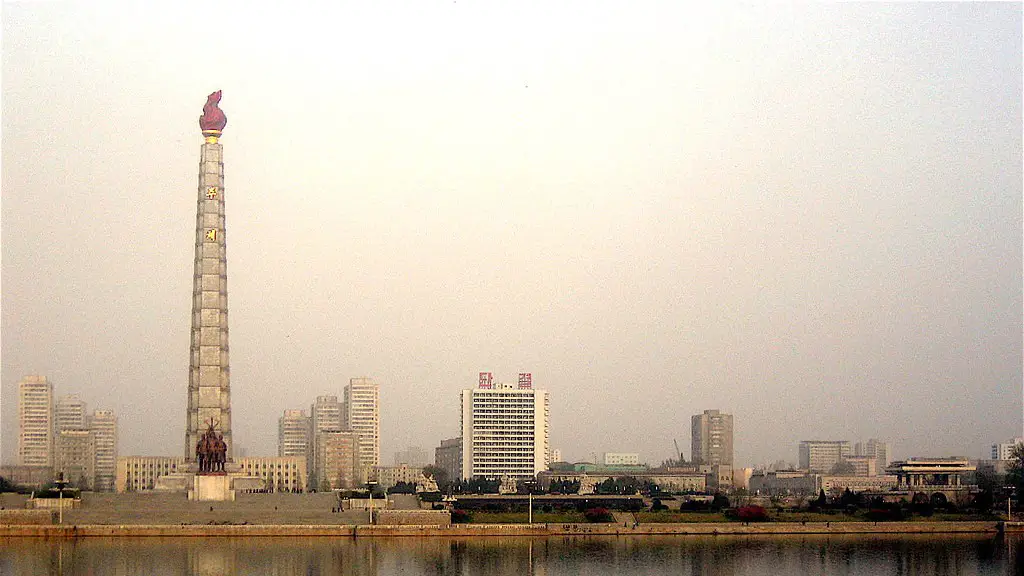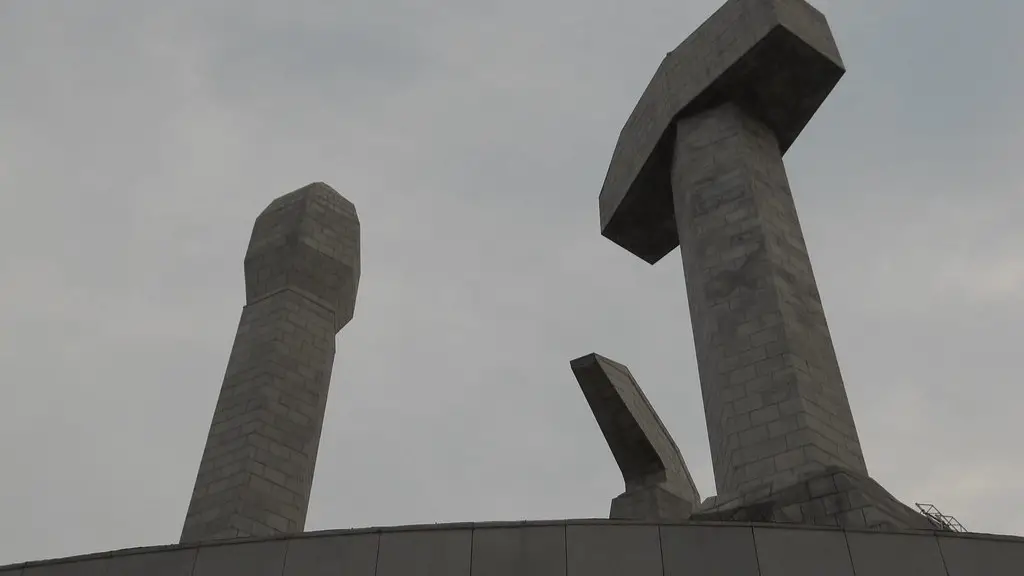Overview of Who Travels To North Korea
Analyzing the demographics of who travels to North Korea offers an interesting look at recent social and historical trends. This article will cover who travels to North Korea, the motives behind these visits, and some insight into the effect of tourism on the country. The overview will also provide some insight into the limited travel opportunities to North Korea and what should be considered when considering a trip.
North Korea, officially known as the Democratic People’s Republic of Korea, is one of the few nations in the world that intentionally limits foreign travel. Despite this, small numbers of people from around the world visit each year. A major motivator for some is the unique and interesting experience North Korea offers for travelers compared to other countries, such as its cultural history and geographic location. Others have more politically or historically-oriented motives, such as engaging with the people, who are not typically exposed to foreigners, or to experience the changes in the country since its founding.
The most common visitors to North Korea include Chinese, American, and European groups, though most of the Chinese visitors are ethnically Korean and others mostly consist of diplomats and journalists. There are also some Westerners that tour on a solo basis, though this activity is technically not allowed per the written regulations. It is typically easy for company-sponsored groups to secure permits in advance, as companies often work with experienced tour agencies with relationships with the regime; however, individual permits are usually reserved for a select few with special reasons for a deeper engagement.
Potential Risks of Traveling to North Korea
Traveling to North Korea inherently carries some risks, and travelers need to carefully consider the situation. North Korea is a repressive country and travelers should be aware of harsh regulations such as the requirement for foreigners to abide by North Korean laws and maintain compulsory chaperoning. North Korean authorities can take advantage of travelers, such as confiscating belongings and prohibiting them from contacting family. The U.S. State Department also warns that U.S. citizens traveling to North Korea are often subject to additional interrogations, searches, and detention.
Given this, the State Department advises against all travel to North Korea, warning that U.S. citizens may be expelled or arrested if they enter without permission. For those wishing to acquire permission, some will require written permission from the North Korean government and the consent of the U.S. Department of State. Those who do receive permission for a visit have to receive a North Korean visa, which can take up to a couple of months to process.
Tourism Regulations in North Korea
Travelers to North Korea must follow the regulations put in place by the government in order to maintain safety and order. Some of these include rules regarding photography and speech. Photos of military installations, state-owned buildings, and military personnel are prohibited, and visitors must always ask permission prior to taking photos of people. Additionally, visitors must refrain from speaking negatively in public, and should display respect for the North Korean customs and traditions.
These regulations must be followed very strictly; the North Korean government is known to be very aggressive in arresting and questioning those that break the rules. It is important for travelers to be aware of the repercussions of breaking any of the regulations.
Cultural Influences Of North Korea
Exposure to new cultures can be a rewarding experience for travelers. Though North Korea is not a stable or safe country for travel in general, there are still plenty of cultural and educative experiences to enjoy. Curated cultural site visits, such as the Victorious Fatherland Liberation War Museum, are enjoyable and memorable. North Korea is home to stunning landscapes and unique wildlife, as well.
The North Korean customs and traditions are interesting, too. North Koreans have their own customs and ways of doing things which may seem strange or difficult to understand for those not accustomed to it. From the food to the language, tourists should take the time to learn and observe the different aspects of North Korean life to gain a better understanding of the country as a whole.
Effects Of Tourism On North Korea
The effects of tourism on North Korea are both positive and negative. On the positive side, tourism brings in financial resources, which can help their economy to an extent. It also exposes the locals to travelers who can possibly spread the truth and break down cultural barriers. The tourism industry provides employment opportunities for locals, too.
On the other hand, tourist dollars may be (mis)used to prop up the oppressive North Korean regime and so do not benefit the local population. Moreover, North Korea has little to no infrastructure and services to support the large influx of visitors. Additionally, the industry has been marked by stories of exploitation and lack of safety, such as inadequate medical care and a lack of basic amenities.
Notable Exceptions For Travel to North Korea
Despite the restrictions, there are notable exceptions to who can travel to North Korea. These include members of the press, trade representatives and diplomats, and mostly athletes who have been invited to take part in international competitions. These people are generally allowed more freedom to visit, but they still need special permission to stay in the country and special security clearances in order to complete certain activities.
In addition, people of Korean descent living abroad can usually visit North Korea as long as they are not citizens of South Korea, the United States, and Japan, as those individuals need special permission to enter. These visitors usually require visas, and will usually need a tour guide to accompany them throughout their trip.
Advantages and Disadvantages of Visiting North Korea
Considering a visit to North Korea requires an awareness of both the advantages and disadvantages for travelers. Some of the advantages are the unique and interesting experiences North Korea offers for travelers compared to other countries and the potential to engage with the people of North Korea, who are not typically exposed to foreigners. On the other hand, North Korea is a repressive country, small numbers of people from around the world visit each year, and those travelers must follow the regulations put in place by the government in order to maintain safety and order.
Visitors must also consider the potential risks of traveling to North Korea, such as the risk of being interrogated, arrested, or deported if they enter without permission.
Costs of Visiting North Korea
The cost of visiting North Korea is a consideration for tourists, with budget travelers typically spending around $3,000–$4,000 excluding flights. This covers hotels, food and tours, as well as the cost of obtaining visas and the necessary paperwork. More comprehensive trips, such as luxury programs and multi-country tours, will cost more.
Most tour groups will also include flight expenses and additional fees such as airport taxes, visa processing fees, and mandatory health insurance. However, certain parts of the country may require extra fees or permits as a result of extra security or accessibility restrictions. That can also affect the total cost of the itinerary.
Mixed Reactions To Tourism in North Korea
Though tourism in North Korea does have its advantages, North Korea has also been met with mixed reactions to its restrictions on tourism. There is no denying that North Korea is a restrictive country, and many feel that the restrictions on tourism only serve to further suppress the population. Additionally, many activists feel that allowing tourists to visit the country is morally wrong due to the oppressive conditions; however, there are also those who believe that tourism can showcase the potential of the North Korean people and could serve as a means to engage with the world.
The decisions to travel to North Korea or not will ultimately be up to the individual traveler, taking into account personal and moral values. North Korea is a unique country, and tourists should be aware of the potential consequences of their decision.
Safeguards for Visiting North Korea
Despite the risks associated with traveling to North Korea, there are also some safety measures that tourists can take when booking their trip. Researching the region extensively, booking with a reputable tour company and checking in regularly with the local authorities can help minimize the risks of traveling in an unfamiliar environment. Tourists should also consider attending political briefings on North Korea and bring along a copy of their passport, other important documents, and any necessary medications.
Visitors should also contact their government or embassy prior to their trip to make sure they are aware of any necessary restrictions or precautions they need to take. Finally, tourists should follow all instructions given by their guide and take the appropriate safety measures to ensure their safety.


